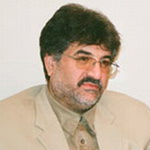Sanctions Lifted; Sanctions Imposed

To state the obvious, Washington’s gesture aims not to facilitate Iran’s nuclear program, but to butter up the Russians, as they appear increasingly willing to support a new UN resolution draft which will impose further sanctions on Iran—this despite the recent agreement between Tehran, Ankara, and Brazil over a nuclear fuel exchange.
The prospects of new negotiations between Iran and the United States are now gloomier than ever, notwithstanding previous backstage talks held between the two countries.
Last week, Washington was unexpectedly quick on the trigger in reacting to the Tehran Declaration, not even letting a week pass before it took action. Behind the swift response, some believe, was Washington’s effort to retain the upper hand in any negotiations and, in fact, American moves were an attempt to overshadow the significance the momentous agreement in Tehran between Ahmadinejad, Lula and Erdogan. There are those, nonetheless, who believe that the Obama administration’s reaction was in fact meant for domestic consumption, as this year’s congressional mid-term elections are almost upon us. The U.S. administration, some people say, is trying to remove any doubts about its willingness to appease Tehran and wants to present a tough, powerful image to American voters (and the international community).
A third interpretation –less likely to be bought- is that the Obama administration’s response to the Tehran Declaration was in fact a preemptive measure to forestall any Congressional efforts to pass anti-Iran bills that could constrain the maneuverability of the administration. From this point of view, the UN draft resolution circulated by the U.S. is in fact an attempt to contain Iran while at the same time giving the U.S. president enough latitude to maneuver on the international stage. Naser Hadian is professor of Tehran University and Iran-US affairs analyst.

